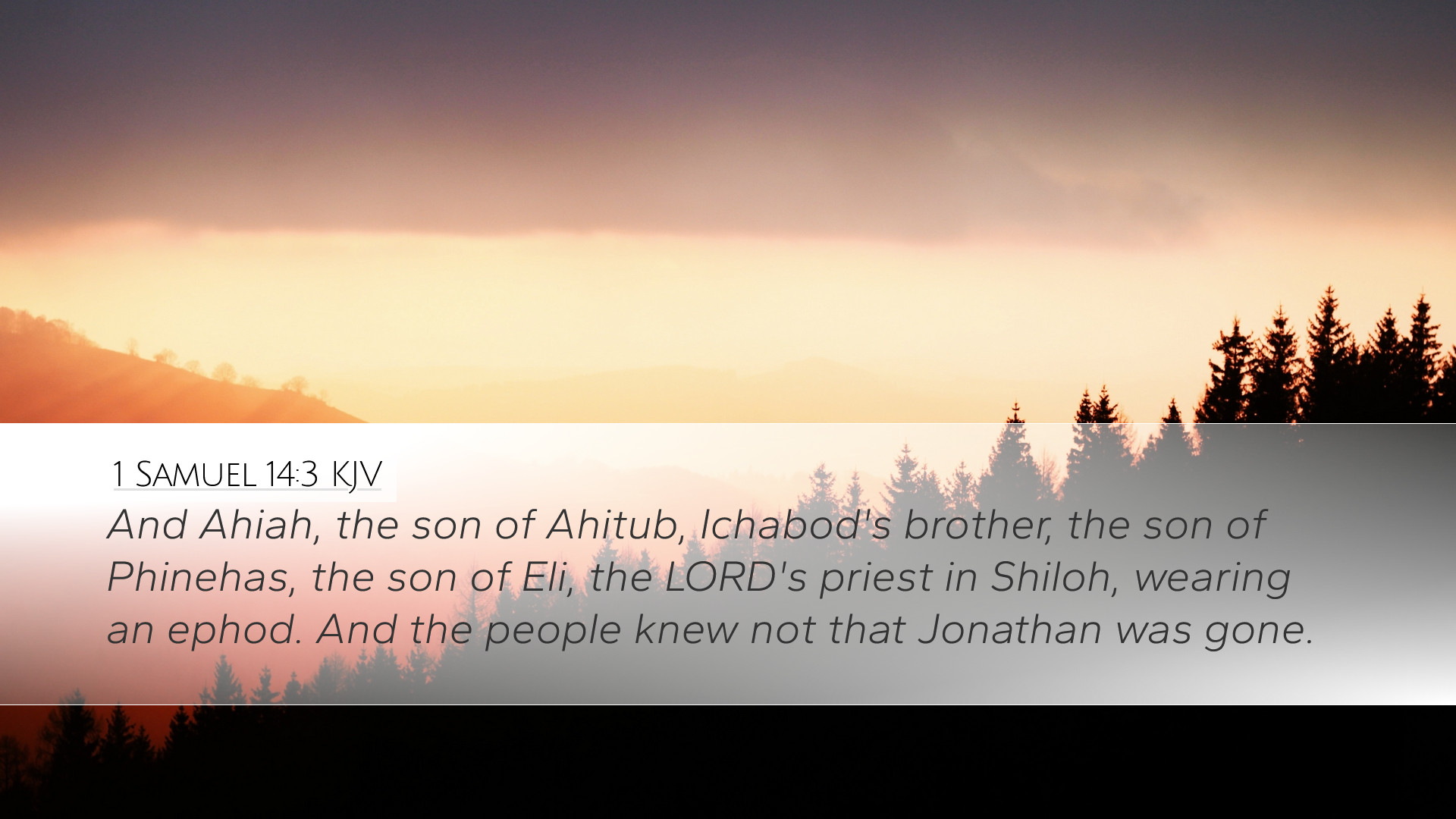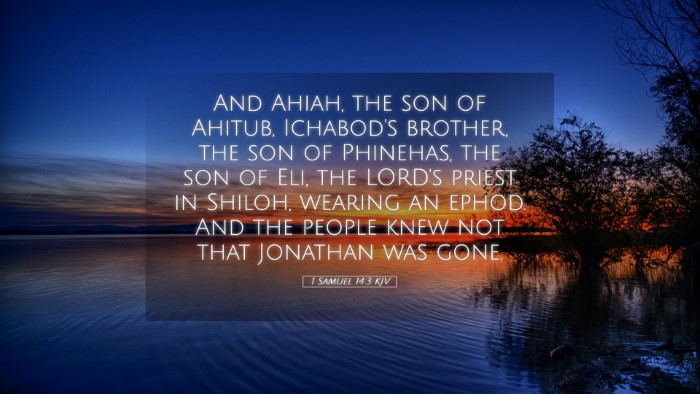Old Testament
Genesis Exodus Leviticus Numbers Deuteronomy Joshua Judges Ruth 1 Samuel 2 Samuel 1 Kings 2 Kings 1 Chronicles 2 Chronicles Ezra Nehemiah Esther Job Psalms Proverbs Ecclesiastes Song of Solomon Isaiah Jeremiah Lamentations Ezekiel Daniel Hosea Joel Amos Obadiah Jonah Micah Nahum Habakkuk Zephaniah Haggai Zechariah MalachiChapter
1 Samuel 1 1 Samuel 2 1 Samuel 3 1 Samuel 4 1 Samuel 5 1 Samuel 6 1 Samuel 7 1 Samuel 8 1 Samuel 9 1 Samuel 10 1 Samuel 11 1 Samuel 12 1 Samuel 13 1 Samuel 14 1 Samuel 15 1 Samuel 16 1 Samuel 17 1 Samuel 18 1 Samuel 19 1 Samuel 20 1 Samuel 21 1 Samuel 22 1 Samuel 23 1 Samuel 24 1 Samuel 25 1 Samuel 26 1 Samuel 27 1 Samuel 28 1 Samuel 29 1 Samuel 30 1 Samuel 31Verse
1 Samuel 14:1 1 Samuel 14:2 1 Samuel 14:3 1 Samuel 14:4 1 Samuel 14:5 1 Samuel 14:6 1 Samuel 14:7 1 Samuel 14:8 1 Samuel 14:9 1 Samuel 14:10 1 Samuel 14:11 1 Samuel 14:12 1 Samuel 14:13 1 Samuel 14:14 1 Samuel 14:15 1 Samuel 14:16 1 Samuel 14:17 1 Samuel 14:18 1 Samuel 14:19 1 Samuel 14:20 1 Samuel 14:21 1 Samuel 14:22 1 Samuel 14:23 1 Samuel 14:24 1 Samuel 14:25 1 Samuel 14:26 1 Samuel 14:27 1 Samuel 14:28 1 Samuel 14:29 1 Samuel 14:30 1 Samuel 14:31 1 Samuel 14:32 1 Samuel 14:33 1 Samuel 14:34 1 Samuel 14:35 1 Samuel 14:36 1 Samuel 14:37 1 Samuel 14:38 1 Samuel 14:39 1 Samuel 14:40 1 Samuel 14:41 1 Samuel 14:42 1 Samuel 14:43 1 Samuel 14:44 1 Samuel 14:45 1 Samuel 14:46 1 Samuel 14:47 1 Samuel 14:48 1 Samuel 14:49 1 Samuel 14:50 1 Samuel 14:51 1 Samuel 14:52

